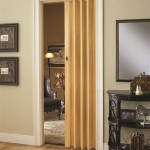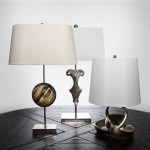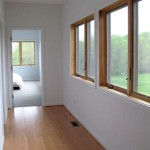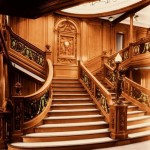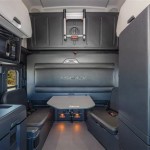Interior Wall Cladding: A Comprehensive Overview
Interior wall cladding refers to the application of one material over another to provide a protective and decorative layer on interior walls. This process significantly enhances the aesthetic appeal, durability, and functionality of interior spaces. It is a versatile solution employed in various settings, ranging from residential homes to commercial buildings, and even specialized environments like hospitals and laboratories. The materials used for cladding are diverse, each offering unique properties and aesthetic characteristics.
The primary motivations behind utilizing interior wall cladding extend beyond mere aesthetics. Cladding can provide thermal insulation, effectively reducing energy consumption by maintaining stable indoor temperatures. Acoustic insulation is another crucial benefit, particularly in environments where noise reduction is paramount, such as offices and recording studios. Furthermore, cladding protects the underlying wall structure from damage caused by moisture, impact, and general wear and tear, extending its lifespan and reducing maintenance costs.
Choosing the appropriate type of interior wall cladding necessitates careful consideration of several factors. These include the desired aesthetic, the functional requirements of the space, the budget constraints, and the installation process. Understanding the properties and advantages of different cladding materials is essential for making an informed decision that aligns with the specific needs of the project.
Aesthetic Enhancement and Design Versatility
One of the most compelling advantages of interior wall cladding is its ability to dramatically transform the aesthetic of a space. Cladding materials are available in a vast array of colors, textures, patterns, and finishes, offering virtually limitless design possibilities. From sleek and modern designs using materials like metal and glass, to rustic and traditional looks achieved with wood and stone, cladding can contribute significantly to the overall ambiance of a room.
The design versatility of cladding allows architects and designers to create visually striking features and focal points within an interior space. For example, textured cladding can add depth and dimension to a wall, while patterned cladding can introduce visual interest and personality. Furthermore, cladding can be used to seamlessly integrate architectural elements, such as columns and arches, into the overall design scheme.
The application of cladding can also rectify imperfections in existing walls. Uneven surfaces, cracks, and other blemishes can be concealed behind a smooth and uniform cladding layer, creating a clean and polished look. This can be a particularly effective solution in older buildings where wall surfaces may be deteriorated or damaged.
Moreover, cladding can be used to define different zones or areas within a large open space. By using contrasting colors, textures, or materials, distinct visual boundaries can be created, helping to organize and delineate the functionality of the space. This is particularly useful in commercial settings such as offices and retail stores.
Functional Benefits: Protection, Insulation, and Durability
Beyond its aesthetic contributions, interior wall cladding offers a range of functional benefits that enhance the performance and longevity of interior spaces. Protection against damage is a key advantage. Cladding acts as a barrier, shielding the underlying wall structure from impact, abrasion, and other forms of physical stress. This is especially important in high-traffic areas such as hallways and corridors, where walls are susceptible to damage from carts, furniture, and human contact.
Insulation is another significant functional benefit. Certain cladding materials, such as wood, cork, and some types of composite panels, possess inherent thermal insulation properties. When applied to interior walls, these materials can help to reduce heat transfer, keeping the space warmer in the winter and cooler in the summer. This can lead to significant energy savings and improved comfort levels for occupants.
Acoustic insulation is also a crucial consideration, particularly in environments where noise control is important. Cladding materials with sound-absorbing properties, such as acoustic panels and fabric-covered boards, can reduce reverberation and echo, creating a quieter and more comfortable environment. This is beneficial in offices, classrooms, theaters, and other settings where noise levels can impact productivity and well-being.
Durability is a key factor in the long-term performance of interior wall cladding. The choice of material significantly impacts the lifespan and maintenance requirements of the cladding system. Some materials, such as ceramic tiles and stone, are highly durable and resistant to wear and tear, making them ideal for high-traffic areas. Other materials, such as wood and fabric, may require more frequent maintenance and care.
Furthermore, some cladding materials offer resistance to moisture, fire, and chemicals. These properties can be particularly important in specialized environments such as bathrooms, kitchens, laboratories, and hospitals. Choosing the appropriate cladding material with the necessary resistance properties can help to ensure the safety and longevity of the space.
Types of Interior Wall Cladding Materials
The selection of interior wall cladding materials is extensive, encompassing a wide range of options, each with distinct characteristics and applications. Understanding the properties of these materials is crucial for making an informed decision that aligns with the specific needs of the project.
Wood Cladding: Wood cladding is a popular choice for its natural beauty, warmth, and versatility. It can be used to create a rustic, traditional, or modern aesthetic, depending on the type of wood, finish, and installation method. Wood cladding also offers good thermal and acoustic insulation properties. However, wood is susceptible to moisture damage and requires regular maintenance to prevent rot and decay.
Stone Cladding: Stone cladding offers a timeless and elegant look, adding a touch of luxury and sophistication to interior spaces. It is highly durable and resistant to wear and tear, making it ideal for high-traffic areas. Stone cladding can be made from natural stone, such as granite, marble, and slate, or from manufactured stone veneers. Natural stone is more expensive than manufactured stone but offers a unique and authentic look.
Metal Cladding: Metal cladding is a modern and industrial option, offering a sleek and contemporary aesthetic. It is durable, lightweight, and easy to maintain. Metal cladding can be made from various metals, such as aluminum, steel, and copper, each with its own unique properties and appearance. Aluminum is lightweight and corrosion-resistant, while steel is strong and durable. Copper develops a patina over time, adding character and visual interest.
Glass Cladding: Glass cladding is a versatile option that can be used to create a bright and airy atmosphere. It is easy to clean and maintain, and it allows natural light to penetrate the space. Glass cladding can be made from tempered glass, laminated glass, or decorative glass. Tempered glass is stronger and more resistant to breakage than regular glass. Laminated glass is made from two or more layers of glass bonded together with a plastic interlayer, providing enhanced safety and security.
Tile Cladding: Tile cladding is a durable and versatile option that is suitable for a wide range of applications. It is resistant to moisture, stains, and scratches, making it ideal for bathrooms, kitchens, and other wet areas. Tile cladding can be made from ceramic, porcelain, glass, or stone. Ceramic tiles are the most common type of tile and are available in a wide range of colors, sizes, and textures. Porcelain tiles are denser and more durable than ceramic tiles. Glass tiles are translucent and can add a unique visual element to a space.
Fabric Cladding: Fabric cladding adds texture and warmth to interior spaces. It is often used for acoustic purposes, as it can absorb sound and reduce reverberation. Fabric cladding can be made from a variety of fabrics, such as wool, linen, and synthetic materials. The choice of fabric will depend on the desired aesthetic and the functional requirements of the space.
Plastic/PVC Cladding: PVC cladding is a cost-effective and lightweight option that is easy to install and maintain. It is water-resistant and resistant to rot and decay, making it suitable for damp environments. PVC cladding is available in a variety of colors and textures, mimicking the appearance of other cladding materials such as wood and stone. However, PVC is not as durable as other cladding materials and may be susceptible to scratches and dents.
Composite Cladding: Composite cladding is made from a combination of materials, such as wood fibers and plastic, offering a balance of durability, aesthetics, and affordability. It is resistant to moisture, rot, and insects, making it a low-maintenance option. Composite cladding is available in a variety of colors and textures, mimicking the appearance of natural wood. It is a sustainable alternative to wood cladding, as it is made from recycled materials.
Choosing the appropriate interior wall cladding material requires careful consideration of various factors, including the desired aesthetic, the functional requirements of the space, the budget constraints, and the installation process. Consulting with a qualified architect or designer can help to ensure that the chosen cladding material is the best fit for the specific needs of the project.

Wood Wall Panels Thermory

Interior Wall Cladding Teak Wood

Stunning Stone Wall Cladding Ideas For Your Home Designcafe

Internal Wall Cladding Cladco

Types Of Wall Cladding And Advantages

Reclaim Fame Interior Wall Cladding Panels Moderno Recibidor Y Pasillo Berkshire De Designer Wooden Houzz

Interior Wall Cladding 5 Best Internal Panelling Ideas Architecture Design

Wood Wall Panels Thermory

Interior Wall Cladding Ideas Style Up Your Home

Types Of Wall Cladding And Advantages


